Just when centrist Democrats, and arguably the Democratic Party, caught a break with the nomination of two mainstream, center-left politicians in marquee races for governor in New Jersey and Virginia, Democrats in New York went ahead and nominated flamboyant socialist Zohran Mamdani for mayor.
Given how high-profile New York mayors are, veteran Democratic insiders fret Mamdani’s candidacy will be a politically charged “issue” in campaigns far beyond New York, potentially hobbling the party’s nominees running in competitive races this November and in next year’s midterm elections. Swing voters and independents could view Mamdani’s left-wing agenda and hostility to Israel with suspicion, and Republicans are already casting Democrats everywhere as supporters of the Big Apple’s newly prominent socialist.
Democratic candidates in key races, and Democratic insiders intent on pulling the party back to the center after President Donald Trump’s 2024 reelection, are grappling with what to do. Ignoring Mamdani and claiming the New York mayor’s race is an irrelevant local race in some other jurisdiction is one option. Another is creating long-range political distance from the 33-year-old frontrunner, while making it abundantly clear they are not socialists and reject Mamdani’s platform.
T.J. Rooney, former chairman of the Pennsylvania Democratic Party, said the latter option is the only strategically viable choice. But unlike some of his more nervous center-left counterparts, Rooney said Mamdani actually presents enterprising Democrats with a political opportunity. “It gives you something to play off of. If you’re running for Congress in Pennsylvania and you throw the New York mayor under the bus, who the hell cares?” Rooney told The Dispatch.
“If I was a centrist Democrat, which I am, I would just talk about how crazy some of his ideas are—as a means of separating me from him,” Rooney added. “As long as you don’t agree with some of the [policies] he’s talking about, then you’re fine.”
Mamdani, who is affiliated with the Democratic Socialists of America, built his primary campaign on proposals to hike taxes on corporations and the so-called rich, raise the minimum wage to $30 per hour, implement a rent freeze, open city-owned grocery stores, and provide taxpayer-subsidized bus service and daycare that he advertises as “free.” Meanwhile, Mamdani has declined to back Israel’s right to exist as a Jewish state and embraces the phrase “globalize the intifada”—interpreted by many American Jews as an antisemitic call to violence—as “standing up for Palestinian human rights.”
With that laundry list of positions, stiff-arming Mamdani would appear to be an easy and obvious choice for pragmatic Democrats who—unlike the would-be young mayor—don’t have the luxury of running for election, or reelection, in deep-blue strongholds. But it’s not that simple, with political risks lurking around corners regardless of how centrist and mainstream Democrats handle Mamdani, some Democratic strategists warn.
Democratic candidates who go the route of sharp contrast with Mamdani invite left-wing scorn and contribute to the narrative that the party is in disarray. Some Democrats might opt instead to emphasize agreement with Mamdani’s broadly acceptable goals, such as his focus on “affordability”—reducing the cost of groceries and housing—while highlighting their disagreement with his policy prescriptions. But such nuances often fail to land with voters.
Yet other Democrats might try deflection. I’m not Mamdani, they’ll say. New York isn’t this district or this state, they’ll insist. But New York isn’t Cleveland; it’s not even Chicago or Los Angeles. This contest is going to be front and center in U.S. political coverage, with the winner continuing to make headlines for the four years that follow.
“There are inherent pitfalls in each approach,” a veteran Democratic operative told The Dispatch, requesting anonymity to speak candidly. “Not all politicians are created equal—for some it will be a mere distraction but for others it could turn problematic.”
Some Democrats have in fact sought separation from Mamdani, such as Rep. Laura Gillen, whose suburban New York congressional district is on the southwestern edge of Long Island. “I think it’s incumbent upon my Democratic colleagues to speak up and to say what our party stands for: We are not socialists,” she said in an interview on NewsNation. Gillen’s district leans Democratic but supported then-Vice President Kamala Harris over Trump by a slim 50 percent to 49 percent margin last November.
Gillen and other Democrats critical of Mamdani haven’t stopped the House GOP campaign arm from doing its best to tie all of them to the previously little-known New York state assemblyman’s socialist agenda since he emerged as the frontrunner to serve as New York’s next mayor. (The incumbent mayor, Democrat-turned-independent Eric Adams, is a decided underdog, as are Republican nominee Curtis Sliwa and former Gov. Andrew Cuomo, who so far is staying in the race as an independent after losing the Democratic primary to Mamdani last month.)
“Vulnerable House Democrats are learning the hard way: when you lie down with socialists, you wake up in a political nightmare you helped create,” Mike Marinella, spokesman for the National Republican Congressional Committee, said in a published statement. Congressional Leadership Fund, the super PAC affiliated with House Speaker Mike Johnson of Louisiana, is pushing similar messages, hoping Mamdani’s prominence helps the party protect its threadbare majority in the 2026 midterm elections.
Democratic gubernatorial candidates running in key off-year elections in New Jersey and Virginia are getting the same treatment.
As Semafor’s David Weigel reported recently, outgoing Virginia Gov. Glenn Youngkin is doing his best to boost Lt. Gov. Winsome Sears, the Republican nominee to succeed him, by referring to the commonwealth’s 2025 Democratic gubernatorial nominee, former Rep. Abigail Spanberger, as “someone who reminds me very much of our mayoral candidate for the Democrats in New York.” Those comments followed the Republican Governors Association’s attempt to convince voters there is no difference between Mamdani and Rep. Mikie Sherrill, the Democratic nominee for governor in New Jersey.
Sherrill’s immediate response was half-carrot, half-stick. “While I have plenty of disagreements with Mr. Mamdani, I share his voters’ goal of making life more affordable,” she told Politico. Spanberger’s initial reaction has been dismissive. “I don’t begin to pretend like I know anything about New York politics,” Spanberger told reporters, according to the Washington Examiner. “I’m a Virginian and I’m focused on Virginia.”
Some Democratic insiders believe both of these approaches are strategically insufficient.
Matt Bennett, chief spokesperson for Third Way, a centrist Democratic think tank in Washington, D.C., is urging the party’s candidates to confront Mamdani head-on. Vague contrasts that fail to specify how and why a candidate differs with Mamdani and deflections couched as a parochial indifference could open the door for Republicans to succeed with a message that declares Mamdani is representative of all Democrats.
It’s worked before, explained Bennett, pointing to 2020 and how a few prominent progressives proposing to “defund the police” caused the Democrats fits—and some lost races—because many candidates declined to push back, claiming they did not want to give air time to false GOP talking points.
“We’re worried that it could actually be a big deal. The last three mayors of New York have all run for president. It’s not a small office and it gets outsized attention for all the obvious reasons,” Bennett told The Dispatch, referring to Adams’ three predecessors: Democrats Bill de Blasio and Mike Bloomberg and Republican Rudy Giuliani. “People are going to know who [Mamdani] is.”
“The only thing you can do is separate yourself and make it clear that that is not who you are and that is not who you believe the Democratic Party is,” Bennett added. “Democrats need to do that.”
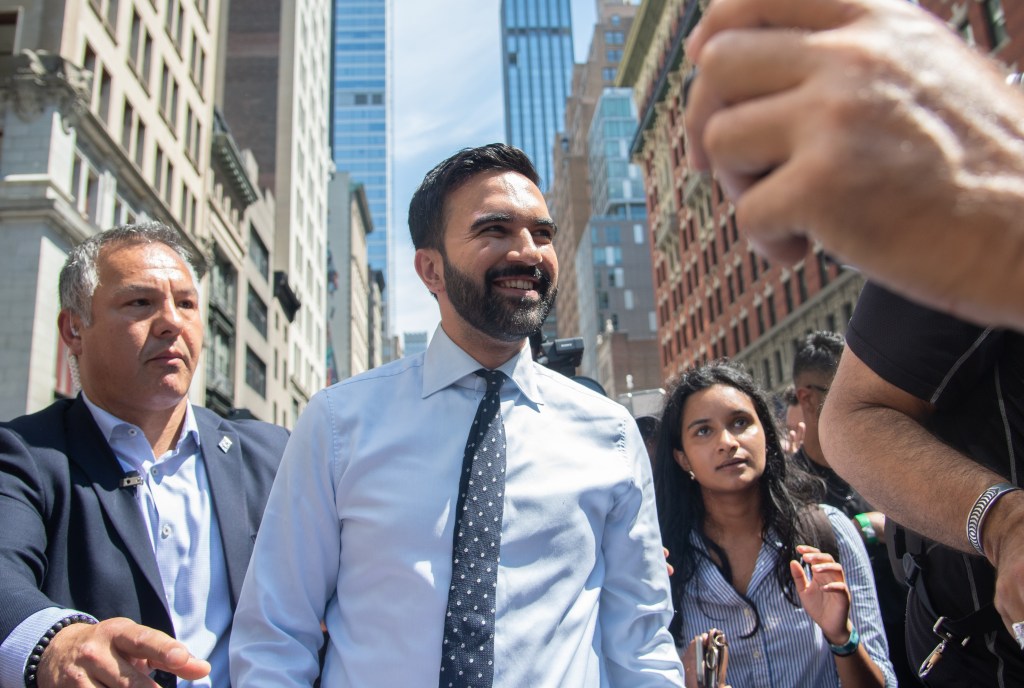

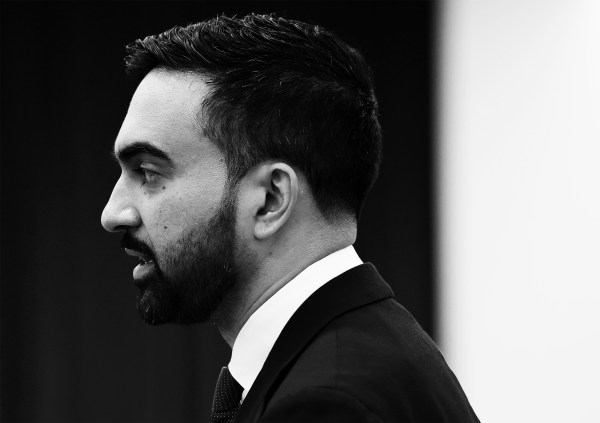
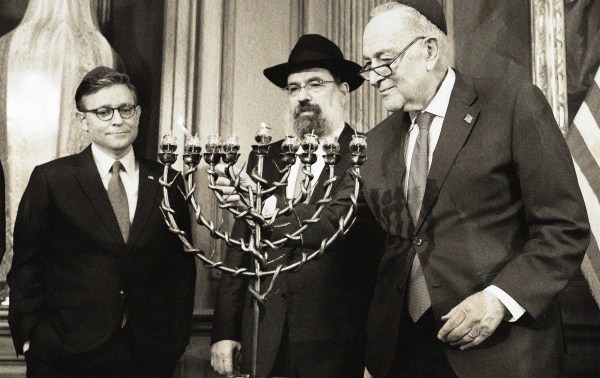
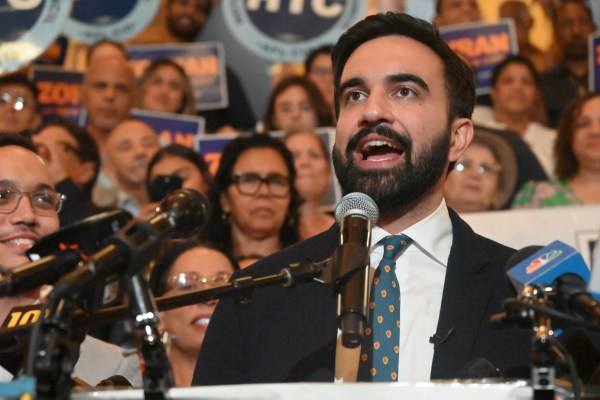


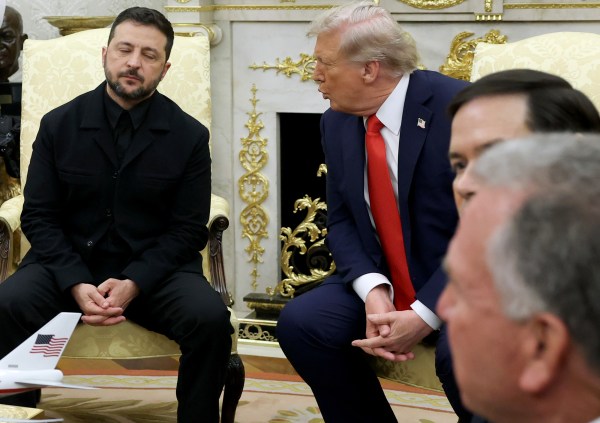

Please note that we at The Dispatch hold ourselves, our work, and our commenters to a higher standard than other places on the internet. We welcome comments that foster genuine debate or discussion—including comments critical of us or our work—but responses that include ad hominem attacks on fellow Dispatch members or are intended to stoke fear and anger may be moderated.
With your membership, you only have the ability to comment on The Morning Dispatch articles. Consider upgrading to join the conversation everywhere.